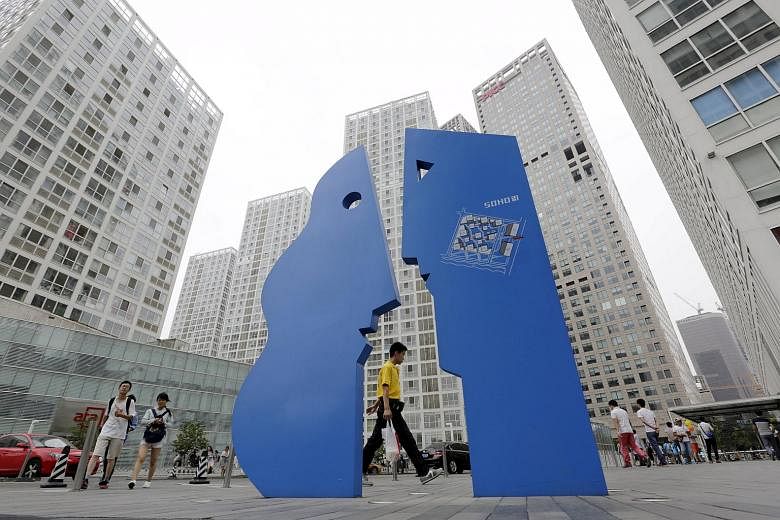A leading member of China's top political advisory body has given an upbeat assessment of China's growth prospects at a forum in Singapore.
Mr Tung Chee Hwa, who was Hong Kong's first chief executive and is now vice-chairman of the 12th Chinese People's Political Consultative Conference's National Committee, said China's economy will keep growing at 7 per cent in the coming years.
He was delivering the keynote address of the opening plenary session at the FutureChina Global Forum 2015 at the Shangri-La Hotel yesterday. The two-day forum, ending today, has attracted business executives and government officials from around the world, and academic experts on China-related issues.
The structure of China's economy is changing in many ways, Mr Tung said.
The most striking changes are that domestic consumption and the service sector will be significant growth drivers in the economy. Consumption for the first half of this year would likely reach 60 per cent of total economic output, and the service sector now accounted for 49.6 per cent of the country's output, he added.
Companies higher up the value chain will also do better, he noted.
"New industries such as IT, biotech, high-end equipment manufacturing and new energy have been growing much faster than the rest."
Because of the move towards services, employment growth will remain strong despite the slowing growth rate, he said. Every dollar of output in the service sector created one-third more jobs than every dollar in manufacturing, he argued.
The economy was on course to meet the government's target of creating 10 million jobs a year, he noted, with seven million jobs already created in the first half of this year.
His comments follow weeks of Chinese stock market turmoil. The mainland's slowing economic growth, which has trended downwards since the fourth quarter of 2010, when it was 9.8 per cent, has also caused concern. Last week, Beijing said the economy grew 7 per cent in the second quarter, in line with its official target for this year of around 7 per cent.
Mr Tung added that online sales and Chinese start-ups will be new sources of growth.
The Internet "has levelled the playing field for hundreds of thousands of start-ups to compete in the world of commerce", he said.
Urbanisation, which now stands at 55 per cent, will also contribute strongly to China's growth, he added. The economy will consume less coal in future, as the service sector consumes less energy.
Mr Yukon Huang, senior associate at the Carnegie Endowment for International Peace think-tank in the US, spoke in the panel discussion following Mr Tung's address.
He said many believed China was headed for economic collapse because it faced a debt bubble, property bubble and equity bubble.
However, if China aggressively promoted effective urbanisation, the liberalisation of state-owned enterprises and services, and innovation and technology adoption, it could sustain 7 per cent growth for the next decade, he said.
The Straits Times is a media partner for the two-day forum, and Prime Minister Lee Hsien Loong is a keynote speaker in today's programme.
- SEE BUSINESS

